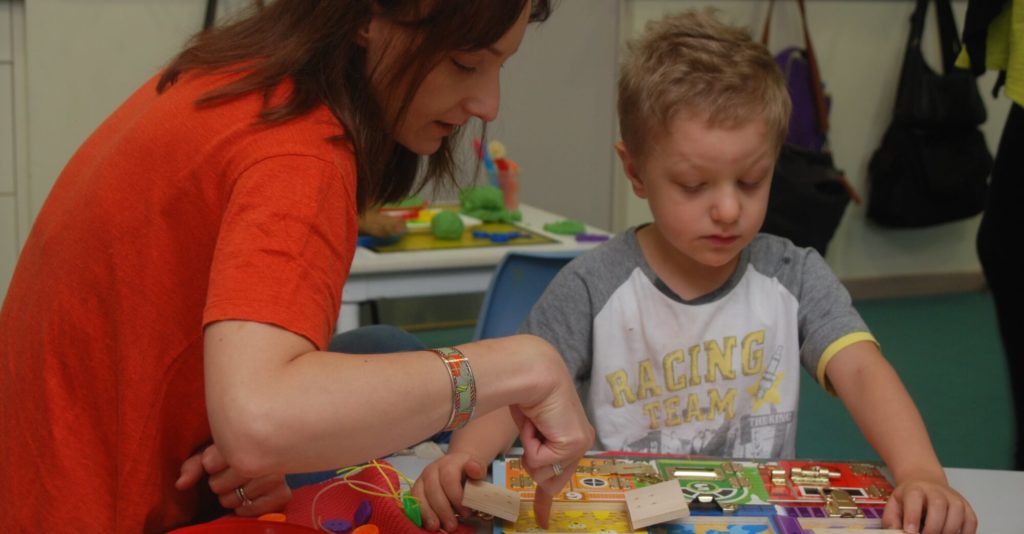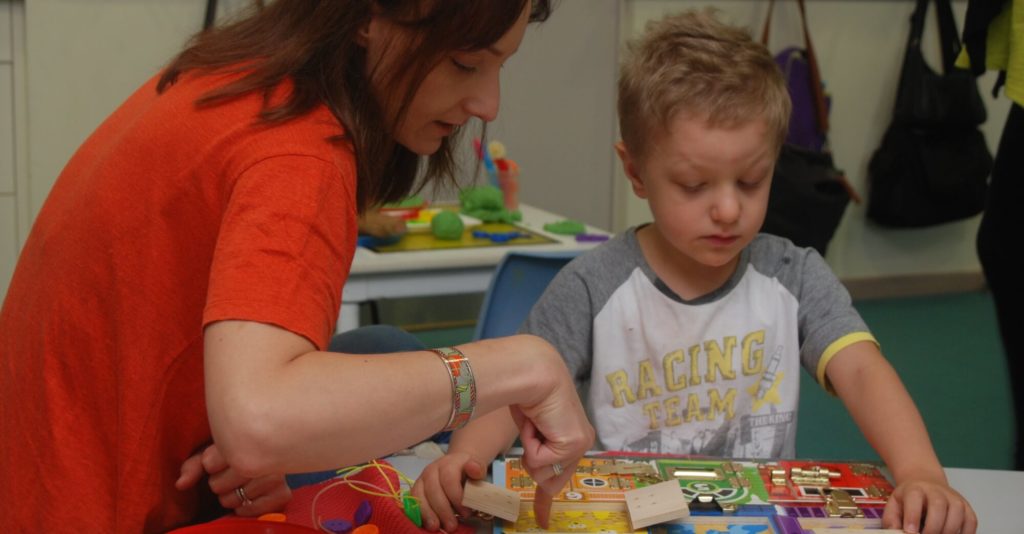If Learning is Harder For Your Child Then Their Behaviour is More Likely to be Challenging

You can probably relate to this challenging situation. You go to a supermarket and your child wants you to buy the packet of lollies at the register. Your answer is “No”: You don’t want your child eating lollies! You’re in charge, you’re the parent and you’ve said “no”. But your child isn’t taking “no” for an answer. You repeat yourself: “No”. They get louder and more demanding. You don’t want your child to be making a scene. You have to work out what to do next.
Does this sound familiar? All day long parents encounter times when they need to manage their child’s behaviour: at the supermarket, at dinner time, bedtime, when you are trying to leave the park or a a friend’s place. It will be anywhere or at any time.
These behaviours are typical of any child. This is because learning new things is hard. Learning to manage your emotions and think about others takes years to develop. When things are hard we avoid them or get frustrated. If we can help a child be less impulsive, think about what other people need and be less frustrated they will actually find learning easier. It is important for parents to expect and support their child to manage their behaviour. It is exhausting though and help to know how to react is worth finding.
If learning is hard for every child and leads to behaviour parents find challenging, then no wonder children who have delays in development are more likely to need behaviour support. Like learning in all developmental areas, support needs to start early in a child’s life. Frustrated children don’t learn as well. To help your child’s learning we need we need to help them manage their behaviour. As with all areas of development, our early childhood intervention team members can tailor your child’s learning to help it make a greater difference.
The Stepping Stones Triple P Program
The Stepping Stones Triple P Parenting program has been specifically designed for parents of a child with a disability. The program provides you as a parent with a toolbox of ideas to help you to build relationships with your child, communicate well and encourage the kind of behaviour you want to see.
EarlyEd runs the Stepping Stones Triple P Program at multiple times throughout the year. The program involves three seminars:
- Positive Parenting for Children with Disability
- Helping Your Child Reach Their Potential
- Changing Problem Behaviour Into Positive Behaviour
Talk to us about how you, your child and your family can benefit from learning these strategies. Put into place routines that help you prepare for and handle challenging situations.
EarlyEd will be running Triple P Stepping Stones seminars in Northern and Western Sydney. Visit What’s On for dates. See our Stepping Stones page for more details.

